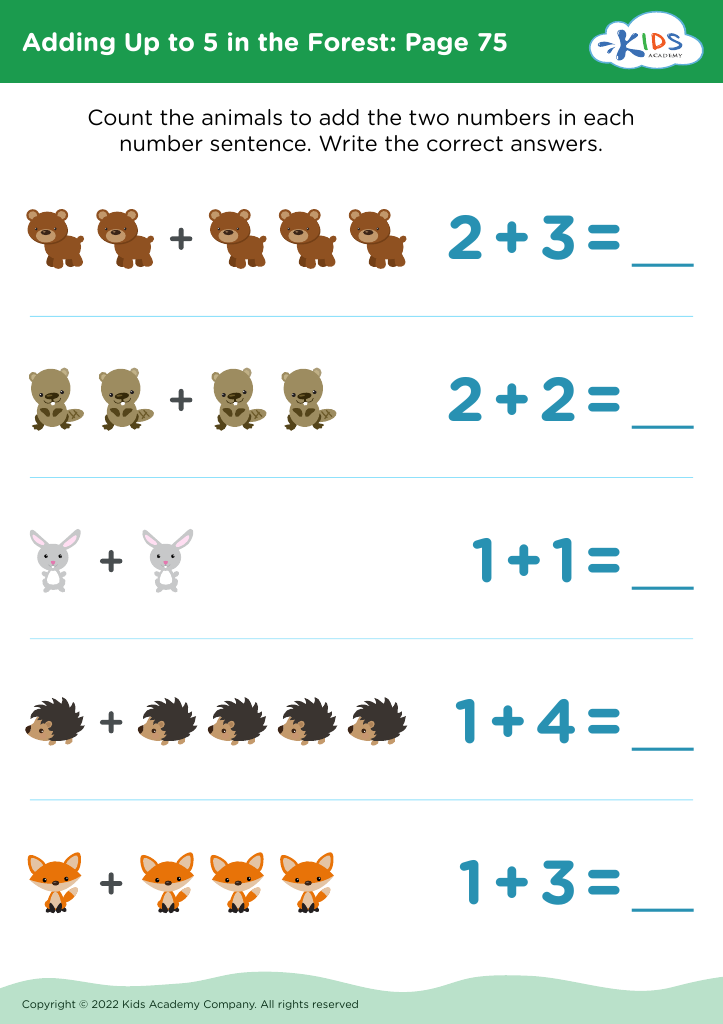Basic math practice Math Worksheets for Ages 3-9
8 filtered results
-
From - To
Discover engaging and interactive basic math practice worksheets tailored for children ages 3-9 on Kids Academy! Our vast collection of printable worksheets helps young learners build a strong foundation in essential math skills, including counting, addition, subtraction, and number recognition. With colorful and fun designs, these worksheets make learning math enjoyable and effective. Whether your child is just beginning their math journey or needs extra practice, our resources cater to all skill levels. Foster a love for math and boost your child's confidence with our expertly crafted worksheets. Visit Kids Academy today and inspire your young mathematician!


Sort and Count to the Moon Worksheet
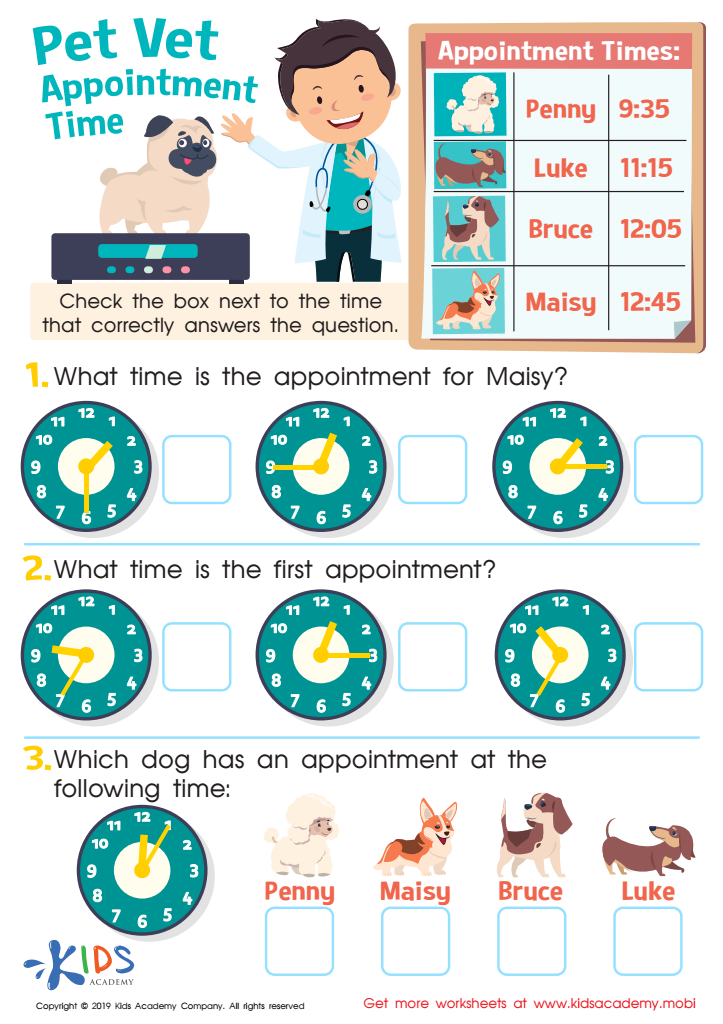

Pet Vet Appointment Time Worksheet
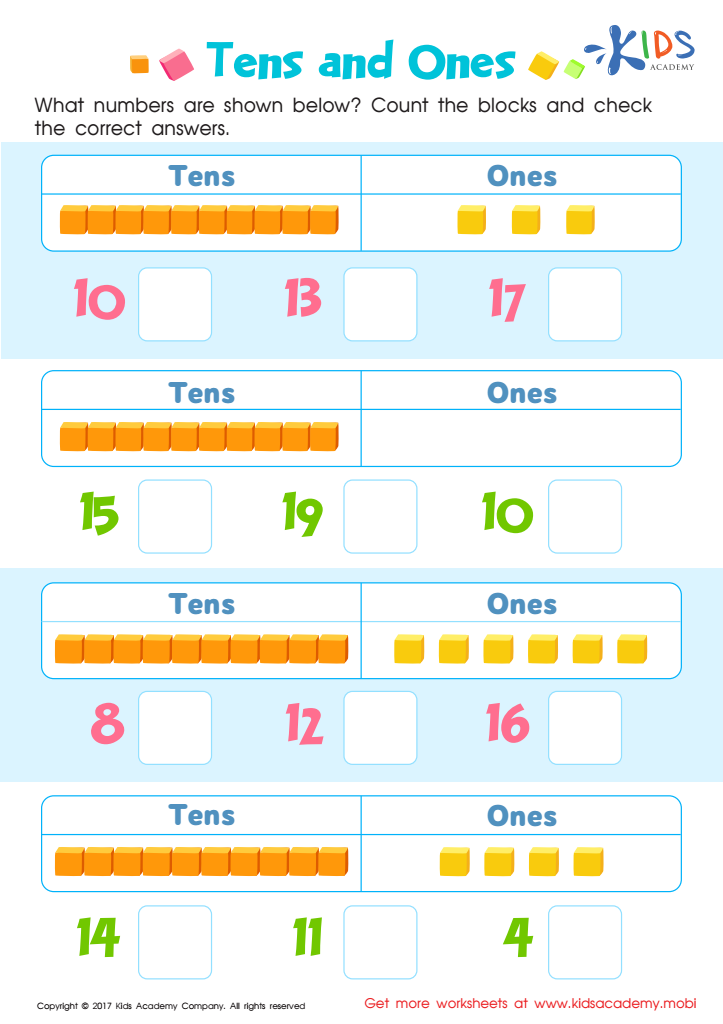

Tens and Ones Worksheet
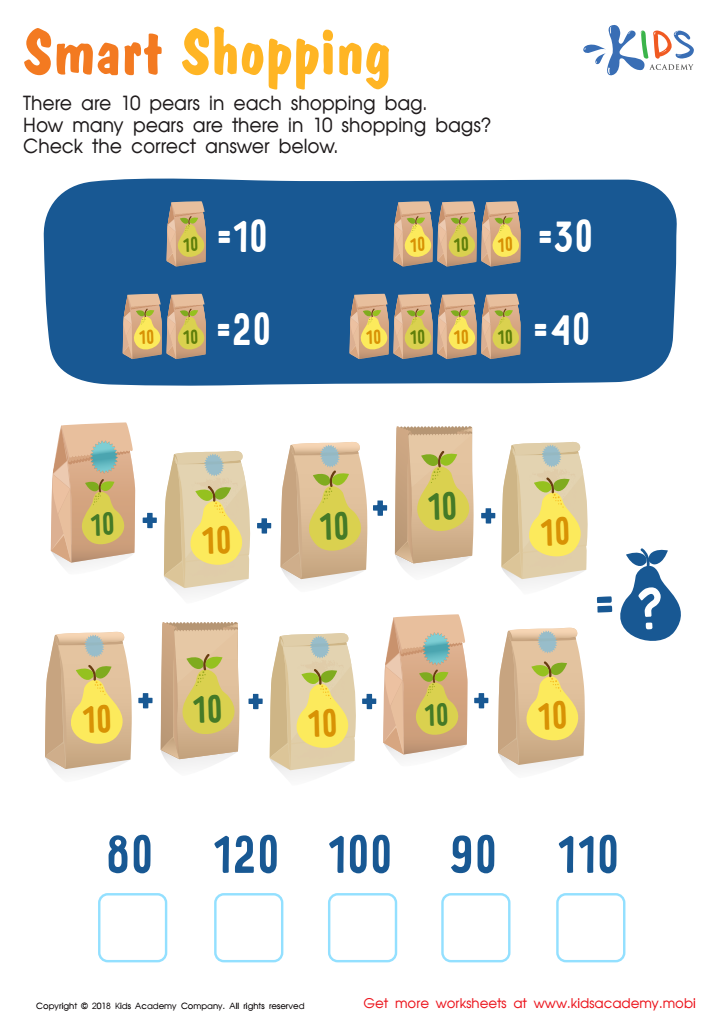

Smart Shopping: Trade Tens for a Hundred Worksheet
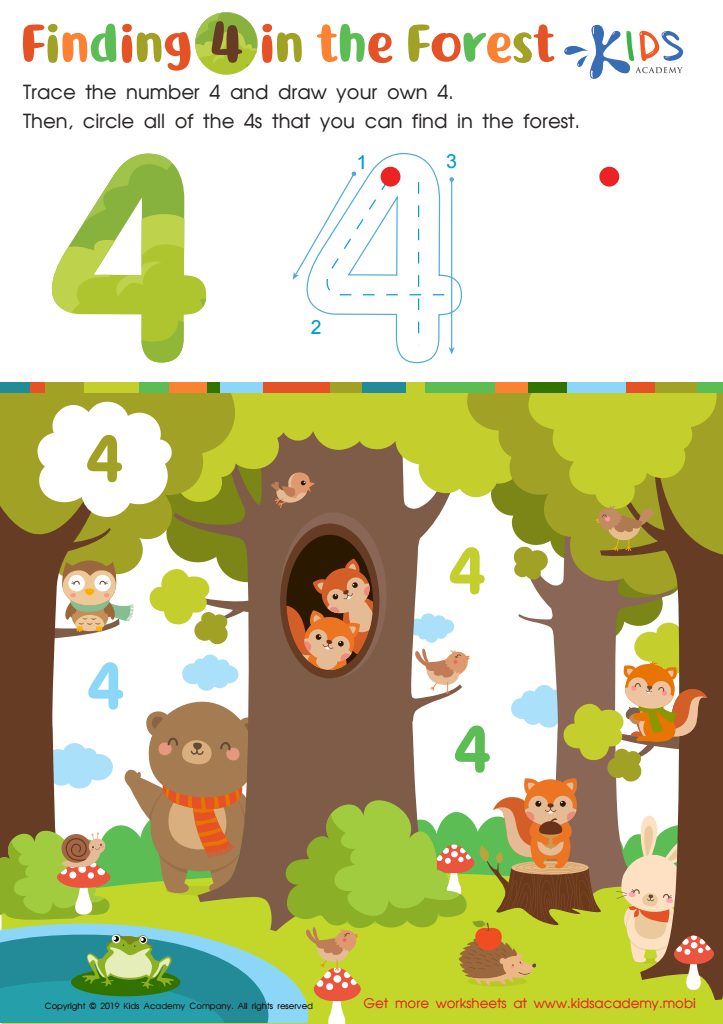

Finding 4 in the Forest Worksheet
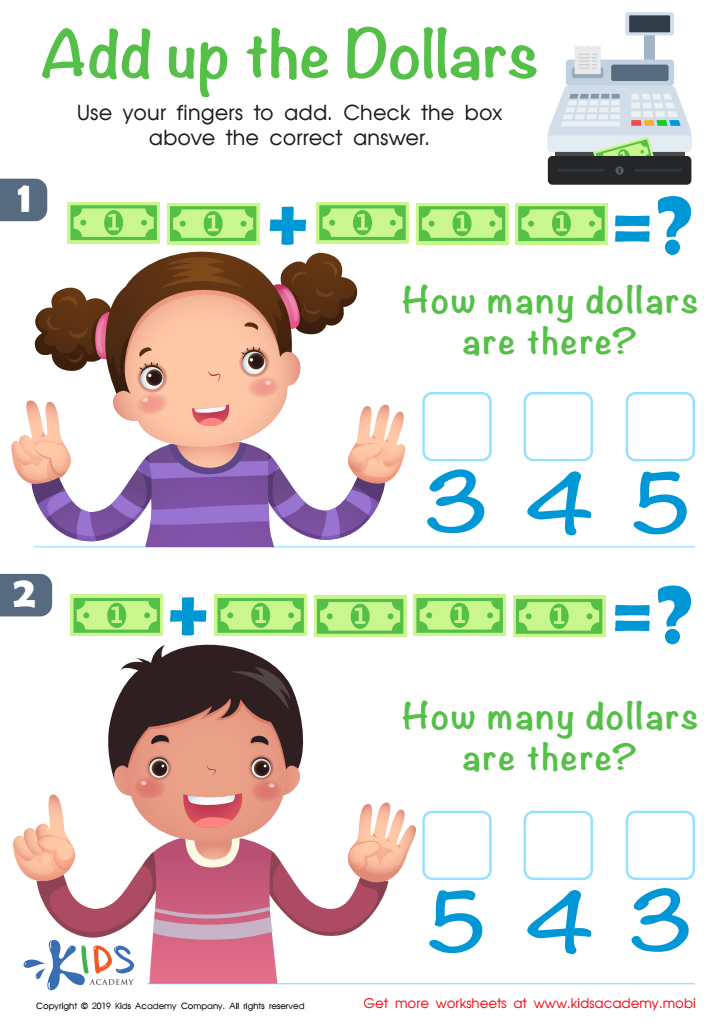

Add up the Dollars Worksheet
Parents and teachers should care deeply about basic math practice for children aged 3-9 because these early years form the foundation for all future learning. This period, known as the "sensitive period" in child development, involves rapid brain growth and neural development. Engaging children in math at this crucial time helps stimulate cognitive abilities such as counting, problem-solving, and logical thinking.
Basic math skills like number recognition, basic addition and subtraction, and understanding shapes and measurements are core competencies critical for daily life. When children are exposed to these concepts early on, they not only become more comfortable with math but also develop confidence and positive attitudes towards learning. Research shows that early math skills are strong predictors of later academic success, more so than early reading skills.
Additionally, early math practice promotes fine motor skills, as activities often involve writing numbers, sorting objects, or using manipulatives like blocks. These activities help improve coordination and dexterity, which are important for overall development.
By investing time in basic math practice for young children, parents and teachers are fostering a love of learning, preparing them for higher education, and equipping them with skills that will be valuable throughout their lives. Early intervention can make a significant difference, ensuring that children do not fall behind and instead have a strong start on their educational journey.
 Assign to My Students
Assign to My Students

